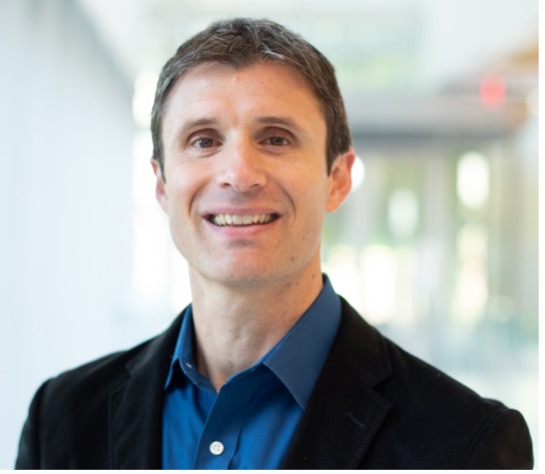Colloquia & Guest Speakers
Trivial and Nontrivial Effects in Polariton Chemistry
Noel Christopher Giebink, Department of Electrical Engineering and Computer Science, University of Michigan
Monday, September 22, 2025
3:30 p.m.
Presented in-person in Goergen 101 and on Zoom
Abstract
Can optical environment change the physical or chemical properties of matter? This question arises for molecules in the strong light-matter coupling regime, where photons hybridize with a given electronic or vibrational transition in a microcavity to form polariton states that can have different energies, coherence, and vibrational characteristics than the bare molecules do outside of the cavity. Despite more than a decade of research, there is still no consensus on many of the experimental phenomena being observed, let alone the underlying mechanisms. In this talk, I will discuss our work exploring photoinduced electron transfer, optical nonlinearity, and vibrationally-induced charge transfer in the weak and strong light-matter coupling regime. In the course of these experiments, we have found null effects, effects that masquerade as nontrivial but turn out to be well-explained by the base material properties outside of the cavity, and some genuine puzzles we have yet to understand that may point to new physics.
Biography

Chris Giebink is a Professor in the Department of Electrical Engineering and Computer Science at the University of Michigan. He received his PhD in Electrical Engineering from Princeton University and holds undergraduate degrees in both Physics and Engineering Science from Trinity University (TX). His research focuses broadly on optoelectronic and photonic devices based on organic materials, with applications in solar energy conversion, solid-state lighting, lasers, and nonlinear optics. He holds 11 patents and is a senior member of the IEEE, OSA, SPIE, and National Academy of Inventors as well as a recipient of the DARPA YFA, AFOSR YIP, and NSF CAREER awards.
